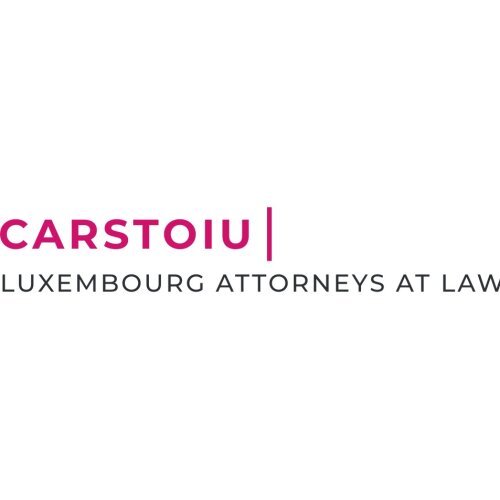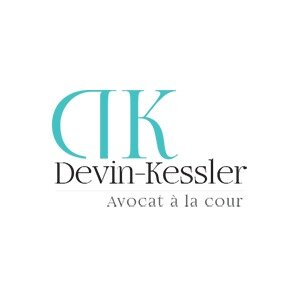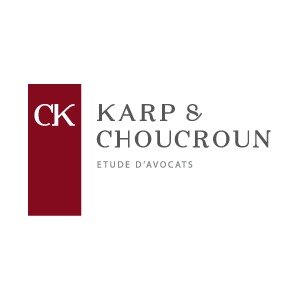Best Education Law Lawyers in Luxembourg
Share your needs with us, get contacted by law firms.
Free. Takes 2 min.
List of the best lawyers in Luxembourg, Luxembourg
About Education Law in Luxembourg, Luxembourg
Education law in Luxembourg governs the rights, responsibilities, and operations of individuals and institutions in the educational system. This area of law covers a wide spectrum, including regulations for primary, secondary, and higher education, as well as the integration of special education. Luxembourg, with its trilingual education system involving Luxembourgish, French, and German, places significant focus on multilingual education, which is a unique aspect of its educational framework. The Ministry of Education, Children, and Youth is primarily responsible for overseeing educational policies and ensuring compliance with both national and European standards.
Why You May Need a Lawyer
There are several common situations in which individuals or institutions might require legal assistance in education law:
- Navigating complex educational policies or disputes over school admissions, placements, or expulsions.
- Addressing issues related to discrimination within the educational setting, whether based on gender, nationality, or special education needs.
- Ensuring compliance with regulations affecting private educational institutions or the establishment of new schools.
- Managing disagreements between teachers and educational institutions involving contracts, rights, and responsibilities.
- Handling challenges related to the integration of multilingualism and cultural diversity in the curriculum effectively.
Local Laws Overview
Luxembourg's education system is regulated by several key laws and regulations. Some of the most pertinent aspects include:
- Compulsory schooling law that mandates education for children from the ages of four to sixteen.
- Laws governing language integration, requiring educational instruction in Luxembourgish, French, and German.
- Regulations concerning the accessibility of education for children with special educational needs.
- Standards set by the General Secondary Education Law, which provides the framework for secondary schooling, assessment, and qualifications.
- The International and European Schools Act, allowing for alternative educational programs aligned with the needs of diverse linguistic and cultural backgrounds.
Frequently Asked Questions
What age is compulsory education required until in Luxembourg?
Compulsory education in Luxembourg is required from the age of four until sixteen.
Is homeschooling legal in Luxembourg?
Yes, homeschooling is allowed but it is closely monitored by the Ministry of Education to ensure compliance with educational standards.
How is the multilingual education system structured?
The educational system in Luxembourg is trilingual, primarily integrating Luxembourgish in early education and progressively emphasizing French and German as children advance through their schooling.
What provisions exist for students with special needs?
There are specific laws and special education services dedicated to providing tailored support for children with special needs, ensuring access to regular schooling where possible.
Can foreign diplomas be recognized in Luxembourg?
Yes, foreign diplomas can often be recognized, subject to evaluation and equivalency processes as dictated by the Luxembourgish Ministry of Education.
What rights do parents have in their child's education?
Parents have the right to be actively involved in their child’s education decisions, including school choice and participation in school life, under the regulatory supervision of educational authorities.
Are there private schools in Luxembourg?
Yes, Luxembourg has numerous private institutions, including international schools, which operate under strict regulations to maintain educational standards.
How are disputes between schools and parents usually resolved?
Disputes are typically addressed through mediation and negotiation, but legal intervention may be required should these methods prove unsuccessful.
What languages are used in the Luxembourgish educational system?
Luxembourgish, French, and German are all used at varying levels across the educational system, with each playing a key role in different stages of schooling.
How does Luxembourg handle religious education in public schools?
Religious education is optional and parental choice is a consideration, with ethical instruction provided as an alternative in public schooling.
Additional Resources
Here are some resources that might be helpful:
- Ministry of Education, Children and Youth: Offers comprehensive information on current educational policies.
- Ombudsman for Children and Youth Rights: Provides support and information to safeguard the rights of children in education.
- European Schools Council: Supports families interested in European schooling options.
- National Information and Welcome Center for Women (InfoFemmes): Offers guidance related to women's rights, including access to education.
Next Steps
Should you need legal assistance in education law, consider the following steps:
- Seek consultation with a qualified lawyer specializing in education law to discuss your situation and receive tailored advice.
- Gather any pertinent documentation or evidence related to your case to provide a clear picture to your legal advisor.
- Utilize governmental resources and legal aid services if financial constraints limit access to private legal services.
- Act promptly to ensure that all legal rights and remedies are pursued within any applicable time limits.
Lawzana helps you find the best lawyers and law firms in Luxembourg through a curated and pre-screened list of qualified legal professionals. Our platform offers rankings and detailed profiles of attorneys and law firms, allowing you to compare based on practice areas, including Education Law, experience, and client feedback.
Each profile includes a description of the firm's areas of practice, client reviews, team members and partners, year of establishment, spoken languages, office locations, contact information, social media presence, and any published articles or resources. Most firms on our platform speak English and are experienced in both local and international legal matters.
Get a quote from top-rated law firms in Luxembourg, Luxembourg — quickly, securely, and without unnecessary hassle.
Disclaimer:
The information provided on this page is for general informational purposes only and does not constitute legal advice. While we strive to ensure the accuracy and relevance of the content, legal information may change over time, and interpretations of the law can vary. You should always consult with a qualified legal professional for advice specific to your situation.
We disclaim all liability for actions taken or not taken based on the content of this page. If you believe any information is incorrect or outdated, please contact us, and we will review and update it where appropriate.













